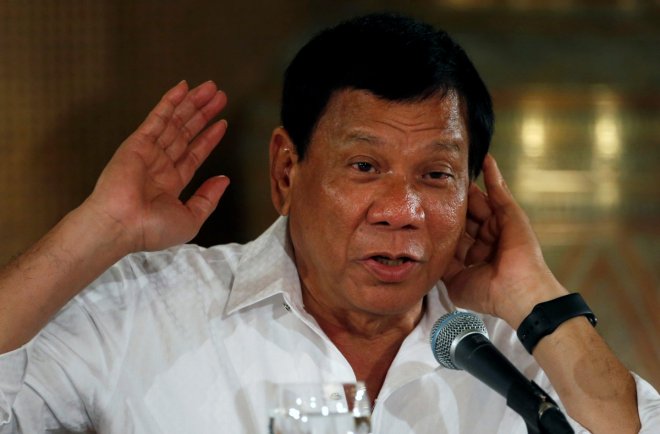
Philippines President Rodrigo Duterte expressed apprehension that nothing will come out of the peace talks with separatist revolutionary organizations unless the rift between the Moro Islamic Liberation Front (MILF) and Moro National Liberation Front (MNLF) is resolved.
He also said he is becoming pessimistic with the peace talks because, aside from the rift, series of lingering conflicts have adversely affected development efforts in some areas in Mindanao. "I am a little bit worried about this and I'm at a loss because I was very optimistic before but now I'm a bit pessimistic now," Duterte was quoted by ABS CBN online.
Duterte said he met with MNLF Leader Nur Misuari who mentioned to him about the ongoing rift to represent the Bangsamoro.
The Philippines government, through its negotiating panel, created the Bangsamoro Transition Commission, represented by the Philippines government, MNLF and MILF leaders, to form a new Bangsamoro Law that allows separatist rebels to self-govern. July 2017 was the deadline set to finish the proposed law.
The MNLF is a revolutionary organization formed in the 1960s fighting for a separate Islamic State in the Southern Philippines. In 1976, Former Libya leader Muammar Gaddafi facilitated the peace talks between MNLF leader Nur Misuari and the peace panel of former Philippines president Ferdinand Marcos.
The series of peace talks led to the signing of the MNLF-GRP Tripoli Agreement that allowed MNLF to have their own semi-government. Unsatisfied with the MNLF leadership, MNLF sub-leader Hashim Salamat along with 57 followers defected from the group and eventually formed the MILF. In 1996, the MNLF also signed a peace agreement in 1996 with the Philippines President Fide Ramos.
The MILF continued its armed struggle until 2014 when it decided to sign the Comprehensive Agreement on Bangsamaro (CAB).
While the MILF and MNLF insist that they represent the Bangsamoro struggle, the Philippiness government is presently in quandary to determine as to which revolutionary organization is genuinely representing the Bangsamoro struggle for self-governance.









